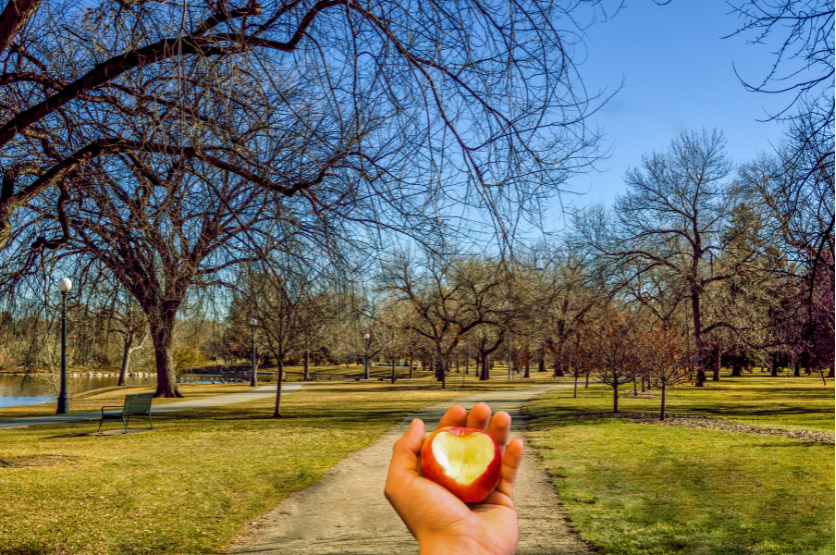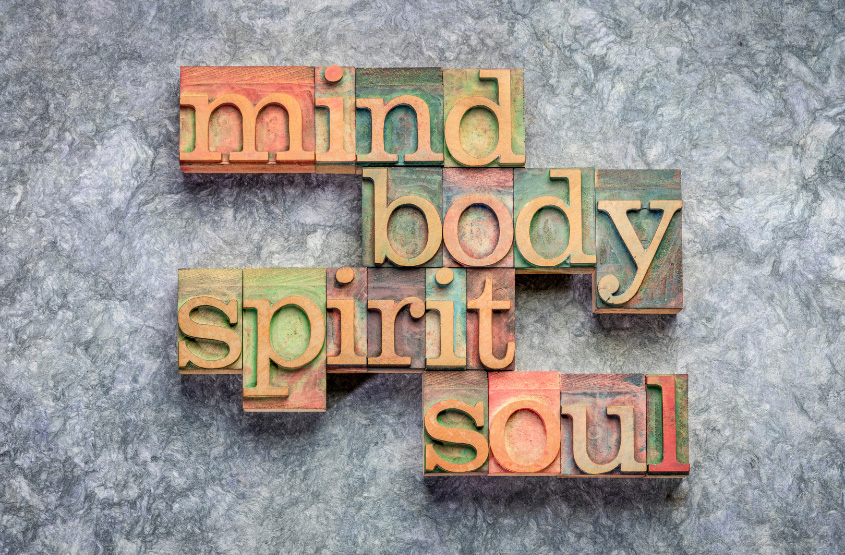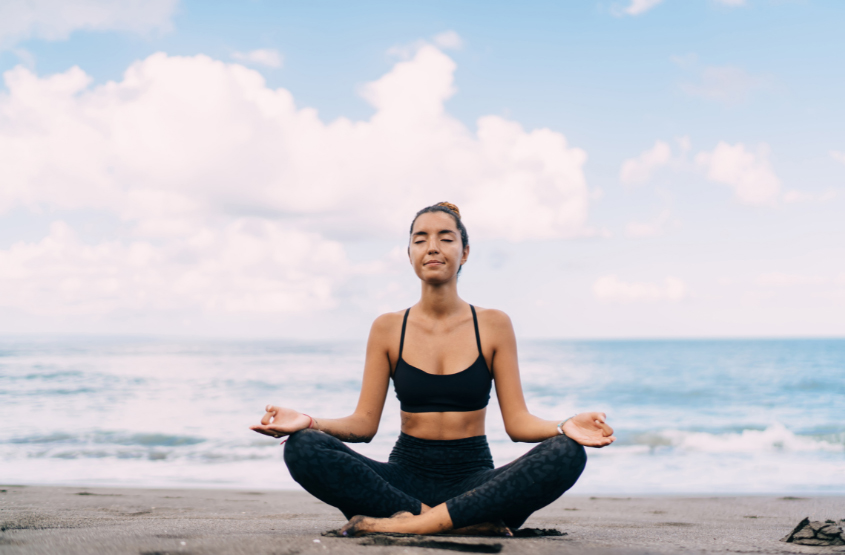A Beginner’s Guide to Holistic Fit Living

“The part can never be well unless the whole is well.” – Socrates
Have you always wanted to adopt healthy living but get overwhelmed? Changing a lifestyle is hard, especially when you don’t have a clear vision. People spend hundreds of dollars on wellness- be it cycling, meditation, or yoga! But, remain unsatisfied!
Fitness in today’s age is becoming more about taking a holistic approach rather than focusing on one aspect.
As leisure activities, processed food, and many stressors surround us, experts suggest holistic fit living. But what exactly is holistic wellness? Grab a cup of tea, and let’s understand it as a whole!
This guide will explain all about holistic fit living! Stay tuned to learn about the meaning of a holistic lifestyle, its significance, and how to achieve it!
What is Holistic Living?
Wholistic fit living or simply referred to as “holistic living,” is the way to become healthy as a whole. It relies on the concept that every part of our life affects the other (and is interconnected). Thus, physical, mental, spiritual, occupational, relationship, and social wellness are all essential. In essence, “a full-picture health”!
Holistic health is an all-encompassing strategy. If you believe that we consist of mind, body, and soul, then the holistic way is to cater to all three together. Holistic health recognizes that wellness is not just the “absence of disease” but satisfaction and happiness.
The idea of addressing every aspect of life came from Eastern countries like India and China. However, it is quickly becoming popular in the Western world. The challenges and stressors of the modern world have convinced experts to take a wholesome approach to health.
The Origins of Holistic Health
The history of holistic health is as old as the 4th century B.C. The earliest mentions of this approach are from the philosophers like Socrates and Hippocrates.
Well before modern medicine took over, the ancient healers used preventative methods to achieve wellness.
Did you know? Yoga and plant-based medicine making waves in the modern world are also part of the holistic approach!
In the late 1900s, people in the West began acknowledging the benefits of alternative medicine and holistic well-being. For instance, the surge in smoking and obesity convinced people to practice preventative measures. They became inclined towards a more comprehensive view of health.
The first wellness conference happened in 1975, and the movement for holistic health gained momentum.
Research in the 21st century yields benefits of well-rounded well-being. From mental wellness and spiritual counseling to practicing meditation and joining support groups, health experts are all about pursuing a holistic approach.
Importance of Holistic Living

Taking on a new approach to living takes work. Still, health practitioners are quickly turning towards alternative ways of care. So, why is this holistic living so crucial?
We Suffer as a Whole
When a problem arises, we don’t suffer in that particular part. Our WHOLE self is affected.
Take a look at the following examples:
- A person in physical pain might also experience emotional distress and a lack of happiness.
- An individual with chronic depression feels fatigued, lacks energy, has body pain, and also disconnects from his relationships.
Thus, when we suffer as a whole, we need to treat it as a whole.
Thoughts Create Aches
Strange, right? But it is true!
Our brain perceives physical and emotional pain in the same way. So, even if you are in pain emotionally, you will be hurt, just like physical pain.
Alternatively, there is an emotional component linked to the sensory stimulus. Thus, when we are hurt (physically), the brain also creates emotional pain.
Check out the whole article on this research and a podcast with a full explanation!
Since emotional and physical pain is connected, a holistic approach should be the answer for appropriate management.
We Need More Clarity of Our Life Goals
How often have you felt you’re going in circles without reaching anywhere in life? Do you ever get lost thinking about your purpose in life?
Lack of clarity of life goals brings distress, reduces motivation, and affects mental health. Practicing holistic fit living will give you a sense of purpose and help you make informed decisions in life.
Components of Holistic Fit Living
Wellness practitioners have divided the “self” into six components requiring attention. So to care for yourself as a whole, you need to cater to the following areas:
- Physical
- Mental/Emotional
- Intellectual
- Occupational/Financial
- Social
- Spiritual
Let’s look at each of these areas and what they include.
Remember: It’s all rooted in maintaining a balance!
1. Physical
The first area is, of course, physical health (which we value so much!). A holistic living will give importance to exercise, diet, and habits that improve the overall quality of life. These include sleep, stress reduction, morning routines, and being mindful of your consumption.
Each body is different; thus, you must choose what’s best for yours. Some bodies are more prone to certain health conditions than others. And therefore, mindlessly following the same regimen will not be beneficial.
2. Mental/Emotional
Mental wellness gets overlooked while talking about health. In a holistic approach, mental health is as essential as physical. Our thoughts and emotions can affect our bodies and vice versa.
Mental health brings motivation to achieve life goals, be happy in relationships and even take care of our bodies. Also, our mental health determines how we react to situations and people. We either choose problem-solving or indulge in risky behaviors to overcome stressors.
Therefore, identifying the emotional triggers or stressors and addressing them on time is crucial for our health.
3. Intellectual
The well-being of our intellect might seem unusual, but it makes sense. Intellectual wellness comes from the activities that engage the mind. You become intellectually healthy whenever you learn new skills, enhance your knowledge, or inspire yourself to grow.
It could be as easy as engaging in a meaningful conversation that stimulates your mind. Holistic health also ensures personal development, so intellectual health is a big part of the process.
4. Occupational/Financial
Another relevant aspect of holistic fitness is occupational well-being. It includes satisfaction and fulfillment in the job and career. Maintaining a work-life balance and being productive in work dramatically affects the quality of life.
It is also about working in an environment conducive to good health. People spend more than 40 hours per week in their workplace. Thus, developing healthy work relationships and reducing work-related stress is vital to the individual’s overall wellness. Holistic living ensures you find time to check in with yourself no matter how hard your work.
5. Social
Research has suggested that a strong social network leads to a happy, healthy life. Our relationships have an impact on our overall well-being. Experts have concluded that social life directly influences our emotional and mental health. And ultimately on our physical being.
Therefore, social wellness is critical in a holistic lifestyle. Maintaining a support group helps in living a healthy life.
6. Spiritual
Spiritual health is vital in holistic fitness besides mental and physical well-being. For some people, spirituality relates to religion, but it can also be personal development.
In simple terms, spirituality can relate to the connection between mind and body. And a process to determine the ultimate purpose or goal of life. It gives meaning to the daily tasks of life.
Spiritual wellness helps the person to function effectively as a whole. When you successfully find the meaning of life, you can lead a happy, content life.
Also: Check out the book, Living a Holistic Lifestyle: Beginners Guide to a Healthy Body, Mind, and Soul, to learn more!
The Four Pillars of Holistic Fit Living

The four pillars of holistic wellness are the avenues through which we can tend to the six components (mentioned above). Taking appropriate measures in these four directions will help to enhance physical, emotional, social, intellectual, occupational, and spiritual health.
The four pillars are:
- Diet and Nutrition
- Exercise and Movement
- Sleep and Stress Management
- Purpose of Life and Connection to Community
You might have heard the importance of these areas in one way or another. But how can you pursue all these avenues AS A WHOLE?
Actually, it’s not as complex as it sounds!
You can include some simple strategies in your daily routine to achieve a holistic lifestyle. And they will ultimately improve your wellness in every life aspect!
Ready to explore? Let’s get to it!
Just a Reminder:
There is no hard and fast rule regarding daily routines. These strategies are proven to improve general well-being, but you can always pick and choose what works best for you. Try these out and see what fits! You can always modify according to your strengths and weaknesses (see? another self-awareness moment!)
Strategies to Achieve Holistic Living
Following are some research-backed strategies that enhance the health of the mind, body, and soul.
Regular Exercise

Regular exercise works wonders for both the mind and body. The holistic approach views exercise not as a means for building muscles or getting lean but as a way to remain fit and active.
Research has shown that exercising at least three times a week can have the following benefits:
- Reduction in the risk of developing severe disorders such as heart disease, diabetes, and cancer
- Decrease in the chances of early death by 30%
- Prevention of chronic illnesses
- Increase in the body’s energy
- Improved mood and sleep quality
- Stress reduction
- Helping to treat depression and anxiety
Make a routine to hit the gym at least a few times weekly. Alternatively, you can create your home workout routine.
For inspiration, check out this 30-minute full-body workout you can easily follow at home!
Need the workout equipment? Here is what you need for the best home workout equipment in 2023!
And wait! there is bonus content for getting on top of athleisure trends in 2023!
Incorporating a Healthy Diet and Nutrition

No one today is unaware of the benefits of healthy eating. But it is hard to maintain a routine with so much processed food around us. The idea of holistic living is to use a diet that supplements your health goals.
There are no strict food choices, but a plant-based nutritious diet is generally better for promoting healthy living. It should include fruits, vegetables, lean meat, whole grains, and healthy fats.
Understanding your body can give you insights into your metabolism and hormones. Your body type also determines what foods you should prefer. (Learn more about your body type here).
Reducing the sugar and carbohydrate content is also essential in a healthy diet. But if you’re used to it, this would take some time.
Make sure you learn “How To Fight Sugar Cravings Throughout the Day”!
Practicing Mindfulness And Meditation

Being mindful simply means being aware of the present situation without any judgment. You should focus on what you are doing, feeling, seeing, or hearing. Spending too much time in negative thoughts, problems, or daydreaming can lead to stress. Ultimately, it drains your energy.
Mindfulness exercises help you regain control of the situation. Modern researchers have found numerous health benefits of being mindful. These include:
- Mood improvement
- Stress resilience
- Greater psychological well-being
- Emotional control
- Relaxing sensations
- Increased productivity
Meditation is also a mindfulness exercise you can easily include in your routine. This 10-20 minute exercise will significantly enhance your mood and overall psychological functioning.
Even if you don’t find time for a structured exercise, there are ways to practice mindfulness in your daily tasks. For instance:
Focussed Breathing
Focussed breathing helps to bring back your attention when your mind wanders through negative thoughts. It is a simple technique to calm yourself down during racing emotions.
Sit down in a quiet room and close your eyes. Focus on your breath as the air moves in and out of your body. Notice your chest rising and falling. Doing this exercise for even a few minutes will bring soothing calm feelings.
Living in the Moment
Living in the moment means paying attention while doing daily life tasks. Whenever in stress, our mind is prone to dwell in the past or worry about the future. Bringing your attention back to the present moment helps to reduce stress and increase productivity.
Visit this link to learn more about such exercises. You can also find tons of worksheets and written material to practice mindfulness.
Here is a quick 5-minute Youtube video on mindfulness meditation!
Getting mastery in mindfulness creates acceptance of self and others. Being mindful teaches that you are worthy and valuable, just as you are. You find joy in the simple pleasures of life, and that’s what improves your well-being as an individual.
Journaling

Another highly beneficial technique for achieving a holistic lifestyle is journaling. Most people hear journaling and think about their school life when they kept diaries. But journaling is much more than just writing randomly.
It is a way to organize your thoughts, deal with emotions, cope with stressors, practice gratitude, and be self-aware. This simple strategy alone can bring numerous health benefits.
Some evidence-based advantages of daily journaling are:
- Boosting immune function
- Reducing the symptoms of anxiety and depression
- Better emotional processing by written catharsis
- Recovery from traumatic events
- Improvement in memory, attention, and critical thinking
- Improved decision-making process
It is super easy to maintain a journal, and it has a positive effect on the body, mind, and soul equally. Make a habit of writing regularly, either in the morning or before going to bed.
All you need is a journal and some colorful pens to motivate you!
If you haven’t kept a journal, thinking about what to write might take time. But don’t worry, only write what comes naturally to you. You’ll slowly get into the habit. For help, refer to some of these journal prompts to start your journaling journey!
Gratitude Journaling
You can practice various forms of journaling, but you must also include gratitude journaling. Counting one’s blessings is a popular technique in positive psychology that aims to change the negative perspective.
It is not anything technical. Just write 3-5 things that you’re grateful for every day. It can be anything small such as enjoying a good meal. But consciously writing about it elevates your mood and makes you appreciate it more.
Did you know? A-list celebrities such as Lady Gaga, Oprah Winfrey, and Will Smith all practice regular gratitude journaling!
When you practice gratitude on your happy days, you automatically project this positive energy in hard times. You learn to push aside negativity and focus on good things in life.
Note: Try to include every life aspect during gratitude journaling. This way, you can feel optimistic about your life as a whole instead of just one thing.
Learn more about gratitude journaling here!
Sleep

There is more to sound sleep than just the number of hours in bed!
The pace of busy life sometimes snatches away the time to unwind and relax completely. However, good sleep plays a significant role in keeping a healthy mind and body. Uninterrupted and refreshing sleep improves mood, brain performance, and productivity during the day.
Good sleep also reduces the chances of heart disease, obesity, stroke, and dementia. Experts suggest quality, quantity, and consistency are essential for good sleep.
To achieve a holistic lifestyle, you should attain a good night’s sleep every day. There is no such thing as catching up on sleep; frequent sleepless nights can interfere with the body’s optimal functioning.
Sleep experts recommend the following tips to improve sleep routine:
- Make a schedule for going to bed and waking up in the morning. Try to be consistent in following the schedule
- Remove all electronic devices or keep them away, such as cell phones, laptops, TV, etc.
- Keep your room dark, quiet, and at a comfortable temperature
- Avoid caffeine or alcohol before bedtime
- Try to be physically active during the day
For more information on healthy sleep habits, check out this article by Sleep Education!
Develop a Growth Mindset

A holistic lifestyle is incomplete without investing time in personal development. Your career, relationships, and social life success depend on self-growth and awareness.
Take time from your schedule to learn a skill, read a good book, or educate yourself. It will stimulate your intellect and make you confident. Enrolling in a training program to reading online (just as you’re doing now) can help you consistently improve.
Join a Community

Finally, joining a community or a social group enhances holistic health by creating a sense of belonging. Social connections have a profound effect on our mental and physical well-being.
Studies during the COVID-19 lockdown period suggested that loneliness significantly affected emotional distress. Connecting with a social group helps you cope with problems and lead a healthier life.
Holistic Fit Living – Key Takeaways
Are you mindlessly scrolling your phone daily? Do you let minor inconveniences ruin your day? Does stressing about uncontrollable things take up your energy?
Then you need to adopt a holistic lifestyle!
Holistic living ensures that the body, mind, and soul are healthy and fit. This approach is gaining momentum in 2023 as the challenges of busy modern life present increased health risks.
The all-encompassing lifestyle includes physical, emotional, intellectual, occupational, social, and spiritual well-being. You can achieve holistic wellness through a bit of practice and the strategies discussed in the article!
Are you ready to adopt holistic fit living? Comment Below!






Leave A Comment